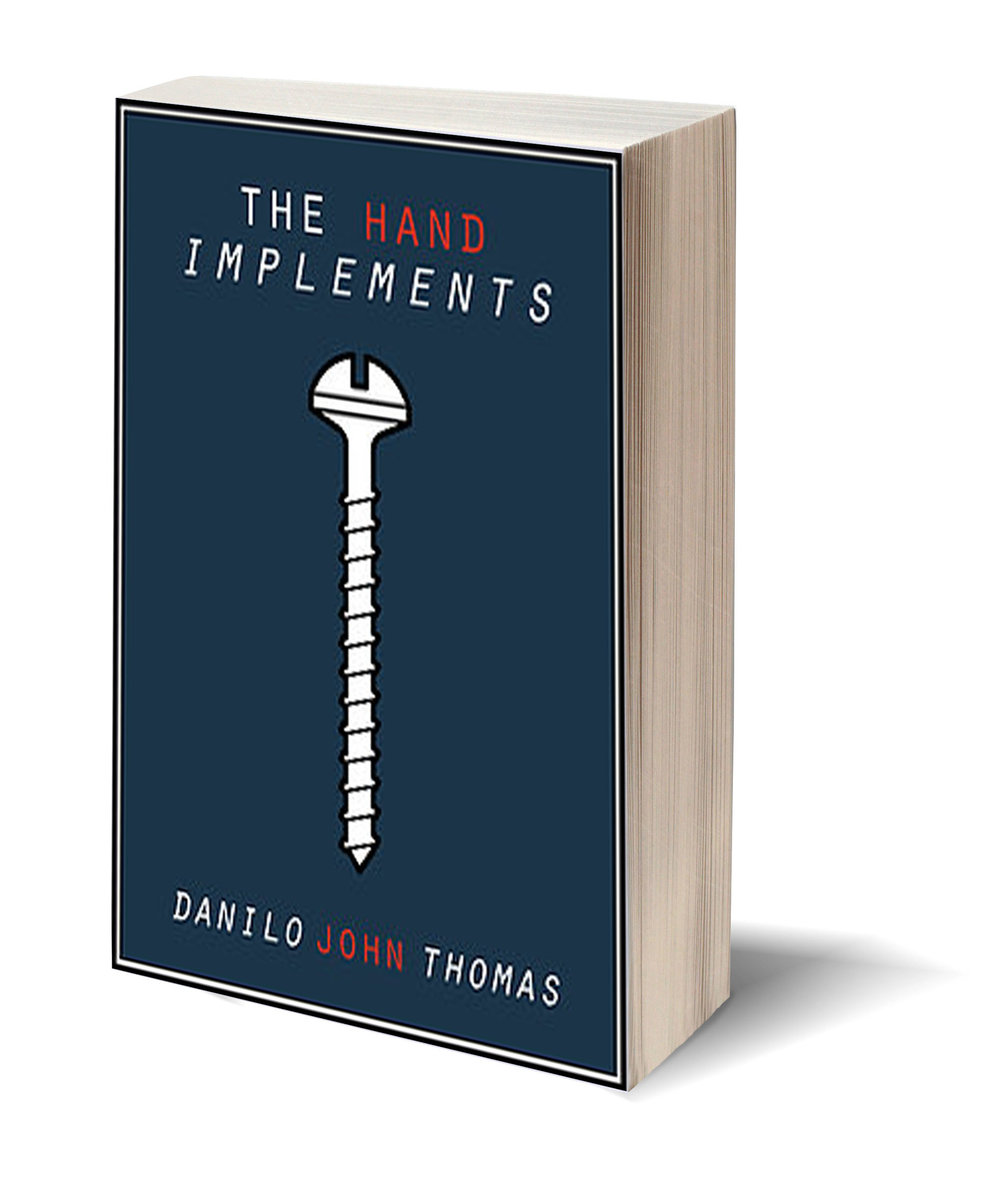The Hand ImplementsBy Danilo John Thomas
The Cupboard |
 |
|---|
Reviewed by Kevin Weidner
Let us imagine that somewhere out in this conflicted, inflicted country of ours, people are feeling down and out. Goodness how the mind wanders then, doesn't it? We think of Appalachia, of the Rust Belt, of Detroit, Atlanta, Dallas, Chicago, of those gutted interiors of many of the American cities, of the economic fizzle of most of the rural communities spread across the landscape, dotting the riversides, the reservoir banks, the oil and gas pipelines and the mines. Oh, the mines.
This is the landscape of Danilo Thomas's The Hand Implements, a landscape influenced by a history and a presence of mining—the landscape of Montana, of the Great American West. In fact, the first lines of the book set us squarely down: "The day hung scored and cornflower over the Mission Mountains. Pine char tinted the air. The continuous lapping of water drummed the shores of Flathead Lake." In each of the five stories included here, we are never far from a gallus frame or a vacant mine yard, a screwdriver factory or exposed rebar.
So it is through this world that Thomas's characters travel—men who are in their prime or more likely past it, men who are fleetingly living their dreams or remembering them. The most apt metaphor from the book itself arises in the story "Orichalchi :: Of Copper," a modular story that follows an unnamed character referred to only as "the grappler." A star wrestler of his high school, a state champion ("He is much celebrated at home"), he has his choice of university to attend. As the story puts it, "The grappler has options." This in itself sets him apart in the town. After leaving the state for school, he (of course) quickly squanders his opportunity: "The cans in his room collapse in his callused hands as he wastes, and he wastes." Returning home to haul trash with other men, he seeks something of his former glory by joining local MMA matches. And here is the key passage:
He brings home one thousand dollar purses. He brings home gashes in his face. The doctors keep pieces of a fractured orbital, a cracked sphenoid, a broken hand. They give the grappler small plates and small screws. His cauliflowered ears, no longer defended by the thin walls of plastic headgear, turn to a jelly that he has to drain nightly.
Out of school, the man is no longer defended by what might have defended him in youth. And what is it exactly that defends us in youth? The stories in Thomas's chapbook suggest that it is the dream of becoming something, the sense, as one narrator puts it, that we are "destined for greater things." This hope acts as a wall of defense, however thin. But the reality on the other side is different, is rude and jarring. And in the world of these stories, it is often violent.
These stories lay bare the violence of these men's lives, and Thomas is adept at describing the violence in a blunt and gruesome way, at once disturbing and as a matter of course. Take, for instance, an incident with a screwdriver in "Torque and Slippage":
Keebles stabbed him in the face. The steel tip of the screwdriver glanced off the man's forehead. Metal met skull and turned Keebles' wrist. The shank tore across the man's orbital and into the fat of his cheek. The man dropped the bat and started screaming, the screwdriver threaded through his face like an upholstery needle.
It might be easy to become mired in the violence of Thomas's stories, the maleness of it all—certainly other readers can, will, and should ruminate on this aspect—but for me, rather than the mutilation of flesh and bodies, it is the disfiguration of the characters' interior selves that makes these stories so stirring.
They are not unreflective characters. Indeed, they are acutely aware of their stations and muse on their particular and shared realities, often entering the realm of the existential. "The same old concerns with death," the narrator describes dispassionately in "Weathered Shells: A Triptych," and then he specifies, "When and how and will we have lived up to our claims?" And explicitly in "Torque and Slippage": "Why do we do anything? The existential is constant with thee, world."
The disfiguration, then, is a loss of that youthful hope. And how to deal with that disfigured hope? Some characters cling to it and its remembrance. As one lies dying, he describes, "Montana's famous sky tightens slowly down on me, all the stars pivoting, and I swear those stones glisten at attainable distances." Another, in "Hammers Are the Domestic Tools," suggests that some peace might come through resignation and acceptance. He notes how some pleasure might be gained from the rhythm of a life "in a house you've worked to own with a wife you've worked to woo and love and keep loving. This makes you appreciate your life, the rhythm of it."
Somehow the resignation seems sadder than the former option, to cling and swear and insist. But the final story, "Rend," makes clear through a third person narrator what the unfortunate reality is for these men. As high school athletes throw a graduation party and relish in their glory, they one day hope to go back, "not yet understanding they will never be able to."
Yes, there is an inevitability to the lives of these men ("the inevitability of mountains"), which comes in no small part from the land and landscape that Thomas builds beneath their feet, where "ranchers couldn't stop the cows from shitting, the shit from attracting flies, the flies from biting."
